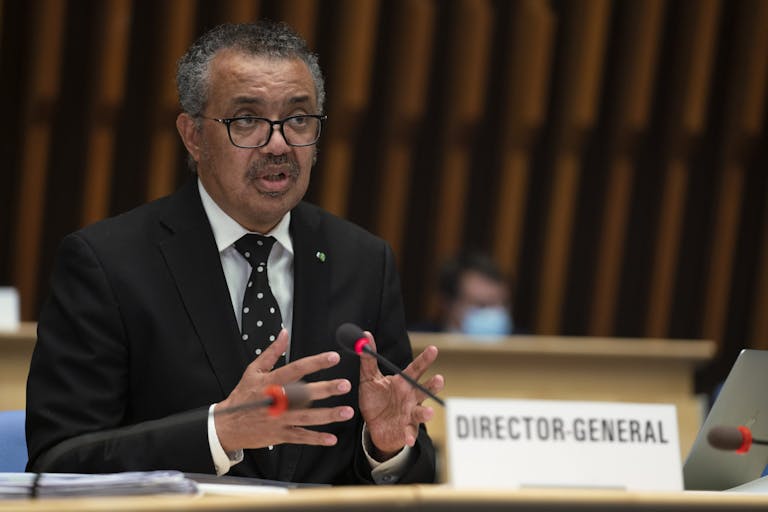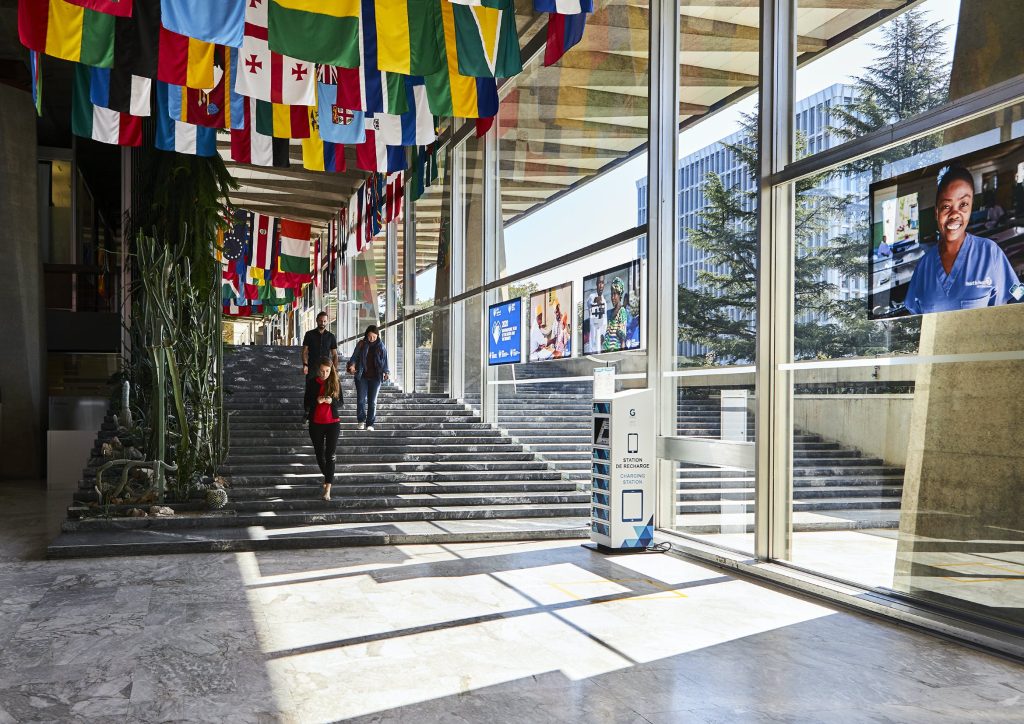When the Member States that govern the World well being group meet for a particular session of the World well being meeting subsequent week, simply one factor is extra probably to be on their agenda. This particular Session, taking place Nov. 29-Dec. 1, was acknowledged as particularly so nations might discover the deserves of latest worldwide authorized agreements that would assist guarantee a extra speedy, full, and equitable response to future well being threats. Some are calling it a pandemic treaty.
How can we handle the governance gaps uncovered by COVID-19?
The COVID-19 pandemic has illuminated important gaps inside the collective capacities of the world to put together for, forestall, and reply to future well being threats. might warning bells have been triggered louder and earlier? might we have a better system to allocate new vaccines and fully different worthwhile countermeasures extra equitably? might there be elevated and sooner methods to marshal sources — scientific, monetary, human — to answer if a menace begins to boil up?
Governments and numerous unbiased overview panels all by means of the world have current you their very personal ideas to deal with the gaps of current pandemic preparedness and response efforts, and the World well being group (WHO) has already designed some new improvements, akin to a consequence of the Hub for Pandemic and Epidemic Intelligence and BioHub.
One idea that gained traction inside the spring of 2021 was the idea of an overarching convention, or treaty, that would codify — by means of an intergovernmental course of — a shared set of ideas, norms, legal guidelines, guidelines, and obligations for a methodology the worldwide group ought to function inside the context of a menace that is aware of no borders. Proponents of a treaty argue it might presumably be a method to raise consideration to future worldwide well being threats to the very most interesting ranges of political management and foster full-of-society and full-of-authorities approaches; align the worldwide group on the way you presumably can equitably allocate worthwhile and probably sparse countermeasures — new vaccines or treatments, even private defending gear — that will in any other case be hoarded; strengthen obligations, incentives, and enforcement round information sharing; and create the means for unbiased monitoring or verification of compliance.

In March, leaders of two dozen nations, collectively with the WHO Director-frequent, Dr. Tedros Adhanom Ghebreyesus, famous that “such a renewed collective dedication can be a milestone in stepping up pandemic preparedness on the very most interesting political stage.”
Setting the Stage for a WHA particular Session
in the course of the annual meeting of the World well being meeting in might, the meeting agreed to convene a particular Session of the World well being meeting in November 2021. It additionally agreed that the particular Session would give consideration to simply one agenda merchandise: consideration of the benefit of growing a mannequin new worldwide authorized instrument on pandemic preparedness and response.
to put together for this WHA particular Session, the Working Group on Strengthening WHO Preparedness and Response to well being Emergencies (WGPR) was created in might 2021, open to all Member States. Since might, the WGPR’s has explored and debated the prospect of a mannequin new and potential worldwide instrument, like a treaty, for extra dialogue on the particular Session.

all by means of the WGPR’s conferences, consensus was not reached on the exact car for the mannequin new instrument (whether or not a treaty, convention, regulation, or in any other case), however delegations made it abundantly clear that enhancements should be absolutely explored to strengthen collective capacities to put together for and reply to future well being threats and that WHO’s position as a consequence of the worldwide coordinating authority on well being was very important. With the teachings of the COVID-19 pandemic latest on their minds, Member States and who’re rigorously contemplating the way you presumably can absolutely seize the prospect of this second in historic previous and make sure that every one nations have the performance to cease and reply to future well being threats.
the methodology whereby forward
it is not but clear whether or not there’s passable political will amongst Member States to maneuver quickly by means of a negotiating interval on a mannequin new treaty. Some even contend that a mannequin new treaty isn’t needed, or useful, and that energies can be elevated positioned strengthening current agreements, akin to a consequence of the worldwide well being legal guidelines (IHR) which was final revised in 2005 and put into strain in 2007. The IHR (2005) was developed after an outbreak of SARS (extreme acute respiratory syndrome) in 2003. It outlines the legally binding duties of all 196 collaborating nations to detect, entry, report, and reply to public well being threats.
The weeks and months following the particular Session is extra probably to be full of debate relating to the character, scope, and feasibility of the options made in the course of the meeting, and their implications for future governance of pandemics and worldwide well being extra broadly. How these negotiations unfold can have lasting implications for WHO’s place inside the governance of future pandemics and well being threats and efficiency a confirm of the willingness of leaders to place money into collective options. there is an prolonged highway forward, however discussions which is extra probably to be about to start out current a willingness by Member States to strengthen the world’s capability to work collectively to protect us all safer and extra healthful. Will the world be elevated ready for a future well being menace? elevated worldwide cooperation on well being would undoubtedly assist. Will a mannequin new pandemic treaty be the methodology whereby that the world rallies to do this? the reply is methodology from sure.

